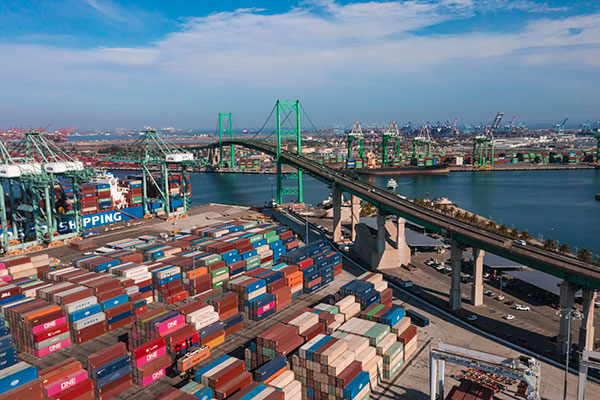
The World Shipping Council is pushing back against a new fee regime announced by the U.S. Trade Representative, warning it could disrupt global trade and increase prices for American businesses and consumers.
In a statement released April 18, the World Shipping Council (WSC) raised concerns about the USTR’s newly announced port fees, calling them “a step in the wrong direction.”
“Revitalizing America’s maritime sector is an important and widely shared goal,” said Joe Kramek, President and CEO of WSC. “Unfortunately, the fee regime announced by USTR will raise prices for consumers, weaken U.S. trade, and do little to revitalize the U.S. maritime industry.”
The WSC said the fees are problematic for several reasons. First, the policy applies retroactively to ships already in transit, adding costs without benefiting U.S. shipbuilders. Second, the fees are based on ship size (Net Tonnage), which the group says unfairly penalizes larger, more efficient vessels that carry essential goods.
“Nearly half of all liner shipping imports to the U.S. are used directly in domestic production processes,” the group noted. “Increasing the cost of these shipments will reverberate through the supply chain.”
The policy also adds fees on car carriers based on Car Equivalent Unit (CEU) capacity, a move the WSC says will slow economic growth and drive up car prices.
Beyond financial impact, the WSC flagged legal concerns, suggesting the USTR may be exceeding its authority under U.S. trade law.
WSC called for a more constructive approach, including investment incentives, infrastructure upgrades, and regulatory improvements. The group emphasized that real barriers to maritime growth include a backlog of military shipbuilding orders, labor shortages, and a lack of certified U.S. mariners.
“The World Shipping Council remains fully committed to supporting U.S. efforts to revitalize the American maritime industry,” Kramek said. “We urge policymakers to pursue strategies that encourage growth, strengthen supply chain resilience, and avoid actions that risk harming American exporters, producers, and consumers.”